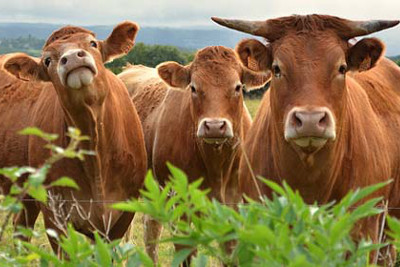

ISO standard for livestock breeders
The ISO technical committee dealing with Food Products (ISO / TS 34) has developed a standard containing requirements and guidelines for the implementation of animal welfare principles. From the point of view of the breeder or the TSL industry involved in the transport of animals, the most important are legal requirements, for whom the ISO / TS 34700 standard is the most important. The title of the standard indicates the participants of the food supply chain.
The standard was created as a guide to help identify deficiencies, but also to help in establishing an action plan to meet animal welfare requirements. Requirements are understood to mean both legal requirements and requirements of private animal welfare standards (e.g. GlobalGAP, QAFP) that comply with the Terrestrial Animal Health Code.
The starting point for ISO / TS 34700 is precisely the Terrestrial Animal Health Code (OIE TAHC) published by the World Organization for Animal Health (OIE). The Code sets animal welfare standards to be used to establish national legislation and other relevant animal welfare documents, as it is indeed the case. By using the ISO / TS 34700 guidelines, we ensure that we meet the requirements of the Terrestrial Animal Health Code . Thus, we are sure that we meet the requirements of the regulations developed on the basis of the Code.
Standard ISO / TS 34700: 2016 covers the welfare of terrestrial animals raised or kept for the production of food or feed. The welfare principles set out in the standard are described in line with the requirements of Chapter 7 of the Terrestrial Animal Health Code . The indicated link determines the scope of the standard, which applies only to the aspects and species of animals indicated in the cited chapter 7 of the Terrestrial Animal Health Code .


Currently, the guidelines of the standard can be used in the case of:
- animal transport by sea (7.2 OIE TAHC)
- transport of animals by road (7.3 OIE TAHC)
- transport of animals by air (7.4 OIE TAHC)
- animal slaughter (7.5 OIE TAHC)
- animal welfare and beef cattle production (7.9 OIE TAHC)
- Animal Welfare and Broiler Production (7.10 OIE TAHC)
- Animal Welfare and Dairy Production (7.11 OIE TAHC)
The animal welfare management method described in the standard has been adapted to different situations and takes into account:
- different production systems and different organizations in the animal products supply chain, regardless of their size and country;
- different geographic, cultural and religious contexts;
- developed countries as well as developing countries.
The aim of the ISO34700 standard is to ensure the welfare of animals raised for food or feed production around the world by implementing the following tasks:
- Provide tools for the implementation of the animal welfare principles set out in the Terrestrial Animal Health Code (chapter 7);
- Provide guidance for the implementation of public or private animal welfare standards and relevant legislation that meets at least the requirements of the Terrestrial Animal Health Code (chapter 7);
- Facilitate the integration of animal welfare principles in business relationships.
The purpose of the standard is to support the implementation of appropriate practices to ensure animal welfare in livestock production systems.
The IKMJ team will help implement the necessary practices in your organization. We guarantee that with our help you will meet the requirements and improve your operation.
Do you have questions?
Contact us!

